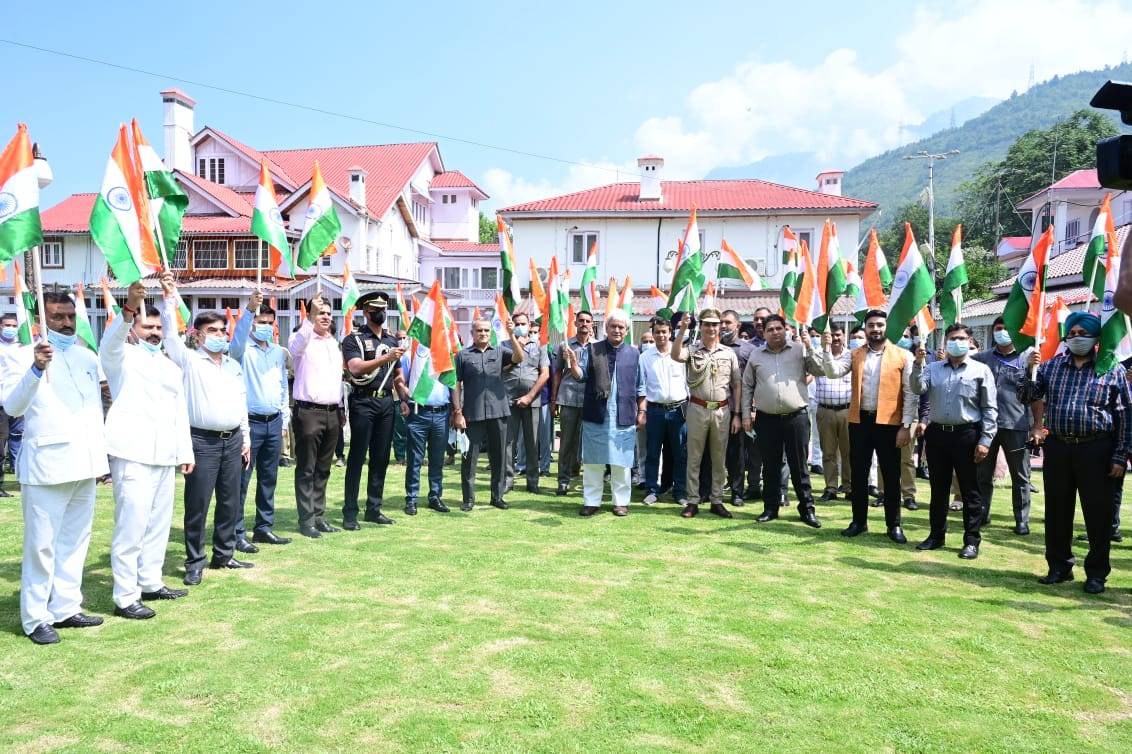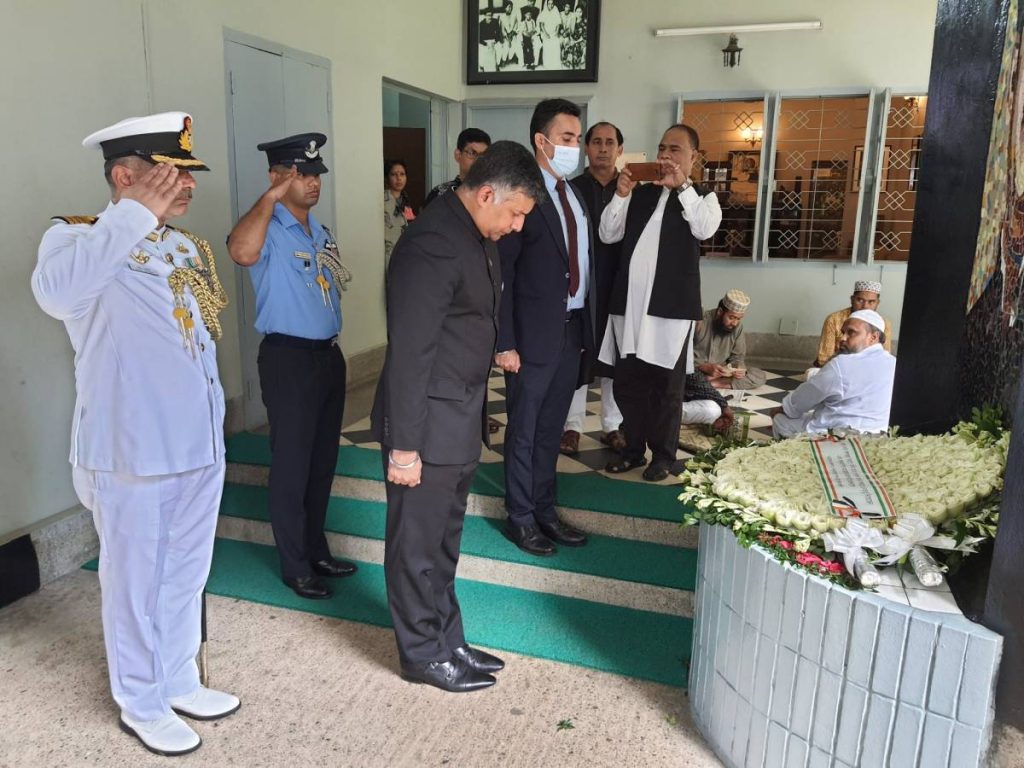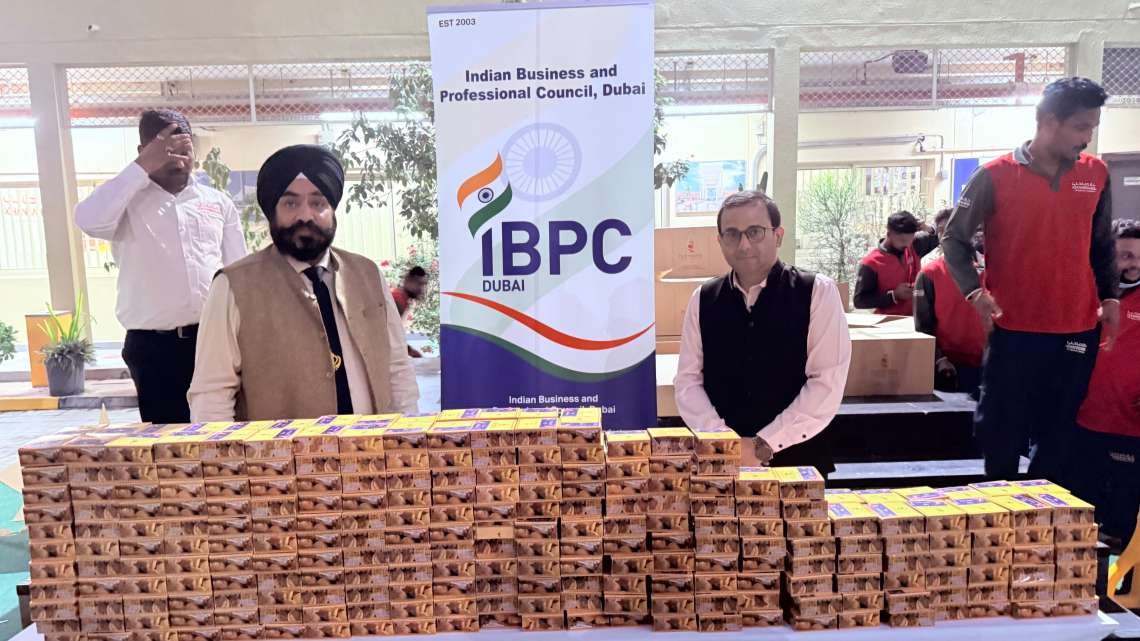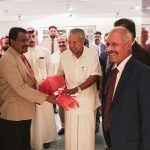The first thing Manoj Sinha did immediately after his taking over as the Lieutenant Governor in August 2020 was to amend provisions of the Article 311 of the Constitution of India, writes Ahmed Ali Fayyaz
Dismissal of the four government officials, who include the Hizbul Mujahideen chief Salahuddin’s third son, JKLF terrorist Bitta Karate’s wife and two senior assistant professors of the University of Kashmir, on Saturday, serves another tough warning from the Government of Jammu and Kashmir that anybody promoting an anti-national agenda would not be tolerated within the ranks.
Strange but true that a section of the government employees in Jammu and Kashmir has been on the forefront of the campaign of ‘azaadi’ ever since the eruption of the armed insurgency. Then Governor of the State, Jagmohan, was the first who dismissed a number of the separatist ideologues and activists, including Abdul Gani Bhat, in the year 1986. Bhat launched the Hurriyat’s precursor, Muslim United Front (MUF). Top Jamaat-e-Islami leaders, including Syed Salahuddin nephew Mohammad Yousuf Shah, contested Assembly elections of 1977 under the banner of MUF.

Ultimately Bhat and his colleagues floated ‘All-Party Hurriyat Conference’ (APHC), a conglomerate of around 30 political, religious and social organisations to provide political support to the militants in 1993. Evidently there was Pakistan’s hand behind the formation and funding of the Hurriyat but its activity and existence for over 25 years in the Indian territory would not have been possible without support from individuals and institutions within the State and the Central government.
The successive governments in Delhi were in fact either ignorant or conveniently permissive to the institutionalisation of secession in Kashmir. In March 1990, top bureaucrats, including some like the late Ashok Jaitley, were among the senior IAS and KAS officers who signed a memorandum seeking the United Nations intervention to stop ‘human rights abuse’ by the security forces. Unambiguously they justified and supported the cause of ‘azaadi’, demanding Kashmir’s solution through the UN resolutions. This was the time when some officers of the State government felt emboldened enough to openly support the militants’ and Pakistan’s cause from their offices and government accommodations.
Twenty-nine years later, one of such IAS officers, while being posted as India’s Chief Information Commissioner, was seen serving wazwan to the guests at Yasin Malik’s walima. A senior retired officer of the Indian Air Force (IAF) was later seen eulogising the staunch Pakistan supporter Syed Ali Shah Geelani as his ‘father’.
The institutionalisation of separatism within the government finally consummated, first when the PDP leader Mufti Mohammad Sayeed formed a coalition government with the Congress party in 2002 and later when he cobbled a coalition with the BJP in 2015.
In the very beginning of 1990, Governor Jagmohan terminated the services of five senior government officers for supporting the militants. Later, they sponsored a 72-day-long strike of the government employees which ended only when the VP Singh government collapsed and the five J&K officers were reinstated by the Chandrashekhar government with the intervention of the two National Conference (NC) leaders, namely Dr Farooq Abdullah and Saifuddin Soz.
Jagmohan banned Jamaat-e-Islami run schools but accommodated all of their teachers in the government services. And when the APHC was floated in 1993, the association of the J&K Government employees were publicly admitted as its constituent. It continued to support Pakistan’s, militants’ and separatists’ cause of “freedom from India” for the next over 20 years.
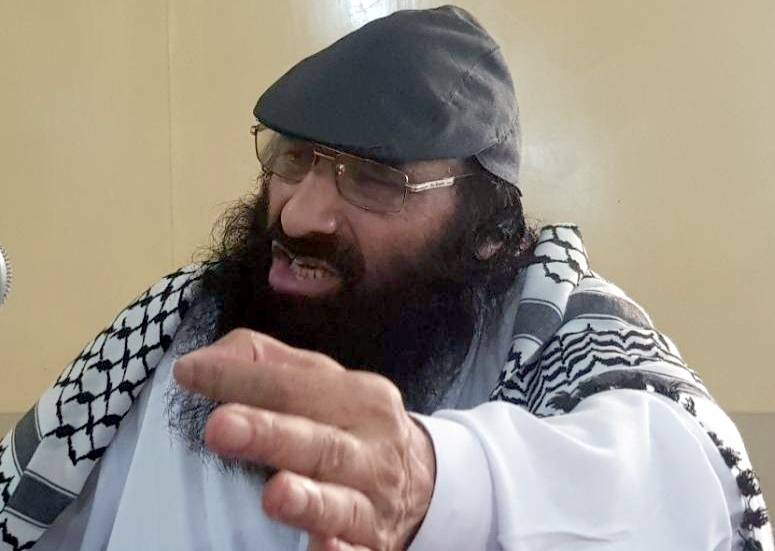
However, the rank separatists grabbed the maximum space in the government services and institutions in 2015-18, when the PDP enjoyed its second term– this time ironically in a coalition with the BJP. Ideologues and activists of the Jamaat-e-Islami and Hurriyat background were placed in key positions. Ministers jostled to pick up this brand as their aides and PROs. It was the period when an icon of the 1990 employees’ agitation was inducted as a Minister in the Cabinet. Even when some employees were dismissed under the coalition partner BJP’s pressure, the termination orders were drafted so loosely that these didn’t sustain in judicial scrutiny and almost all the sacked officials joined their services back with the court orders.
For about 25 years, the government’s own employees were seen sponsoring strikes and enforcing Hurriyat and militants’ calls for shutdown. However, they continued to draw their salaries without any questioning from the government.
So, the first thing Manoj Sinha did immediately after his taking over as the Lieutenant Governor in August 2020 was to amend provisions of the Article 311 of the Constitution of India. The amendment empowered the LG to approve, without enquiry, dismissal of the government employees “in the interest of the security of the State” as per the recommendations of a high level government committee. Over 50 government employees, including those working with the government subsidiaries and undertakings have been dismissed in the last two years. They included Police officials, school and college teachers and the university faculties.
Designated as a global terrorist for being the ‘Supreme Commander’ of the guerrilla outfit Hizbul Mujahideen and Chairman of the Pakistan-based United Jehad Council, Syed Mohammad Yousuf Shah alias Salahuddin has been living in Pakistan continuously since 1993. In the previous phases of the crackdown, the UT Government terminated the service of his two sons, Syed Shakeel and Shahid Yousuf. Booked separately in a terror funding case, both have been arrested and lodged in a jail in Delhi. While Shakeel was an employee of the Sher-e-Kashmir Institute of Medical Science (SKIMS) since 1990, Shahid had been engaged as an Agriculture Extension Officer by the State government.
In the order issued on Saturday, the UT Government has fired Salahuddin’s third son, Syed Abdul Mueed, who had been recruited as Manager Information Technology at the Jammu & Kashmir Entrepreneurship Development Institute (EDI) which functions under the control of the Chief Secretary.
Through another order, the UT Government has dismissed Assaba-ul-Arjamand Khan, a Jammu and Kashmir Administrative Service (JKAS) Officer of the batch-2011, who had been lately elevated to the rank of Deputy Secretary to the Government and posted as a District Panchayat Officer. She was in charge of Publicity at the Directorate of Rural Development in Kashmir. She happens to be the wife of the detained separatist Farooq Ahmad Dar alias Bitta Karate– one time JKLF terrorist who in custody admitted to a television anchor that he had shot dead around 20 Kashmiri Pandits “on the orders of my commander Ishfaq Majid Wani”. However the prosecution in a terror court failed to establish the charges against Karate who was released.
Of late, two old cases– kidnapping of the former Union Home Minister Mufti Mohammad Sayeed’s daughter Rubaiya Sayeed and the Indian Air Force personnel killings– have been revived by the Central Bureau of Investigation (CBI). Along with the JKLF Chairman Yasin Malik, Bitta Karate is facing charges in these cases.
Muheet Ahmad Bhat of Arabal Shalimar, with a doctorate in computer science, had been appointed as a scientist in the Computer Science Department of the University of Kashmir. Over the years, he was elevated to the position of ‘Scientist-D’, equal to senior assistant professor. Government had reports of his involvement in mobilising and promoting separatist political activity even as he acted as President of the Kashmir University Teachers Association (KUTA) for over 3 years. He had allegedly played a role in the post-Burhan Wani turmoil in the valley.
Majid Hussain Qadri of Bhagwanpora Lalbazar Srinagar, was working as a senior assistant professor at the Department of Management Studies, University of Kashmir. He was arrested in 2004 for his alleged links to militants when he was a research scholar at the Kashmir University. However, he was released as the Police failed to establish any changes against him. He subsequently completed his doctorate and was appointed as faculty in the Department of Management Studies.
“Syed Abdul Mueed, Manager IT, JKEDI, has been found having role in three terror attacks on JKEDI Complex at Sempora at Pampore and his presence in the Institution has increased sympathy with the secessionist forces”, said an official press release.
“Ms. Assabah-ul-Arjamand Khan has been found involved in providing false information for seeking a passport. She has been found having links with foreign people who have been indexed by the Indian security and intelligence to be on the payrolls of the ISI. Her involvement in ferrying consignment of money for funding anti-Indian activities in Jammu and Kashmir has also been reported”, said the government press release.
“Dr Muheet Ahmad Bhat has been found involved in propagating secessionist-terrorist agenda in University of Kashmir by radicalizing the students for advancing the programme and agenda of Pakistan and it’s proxies”, the press release added.
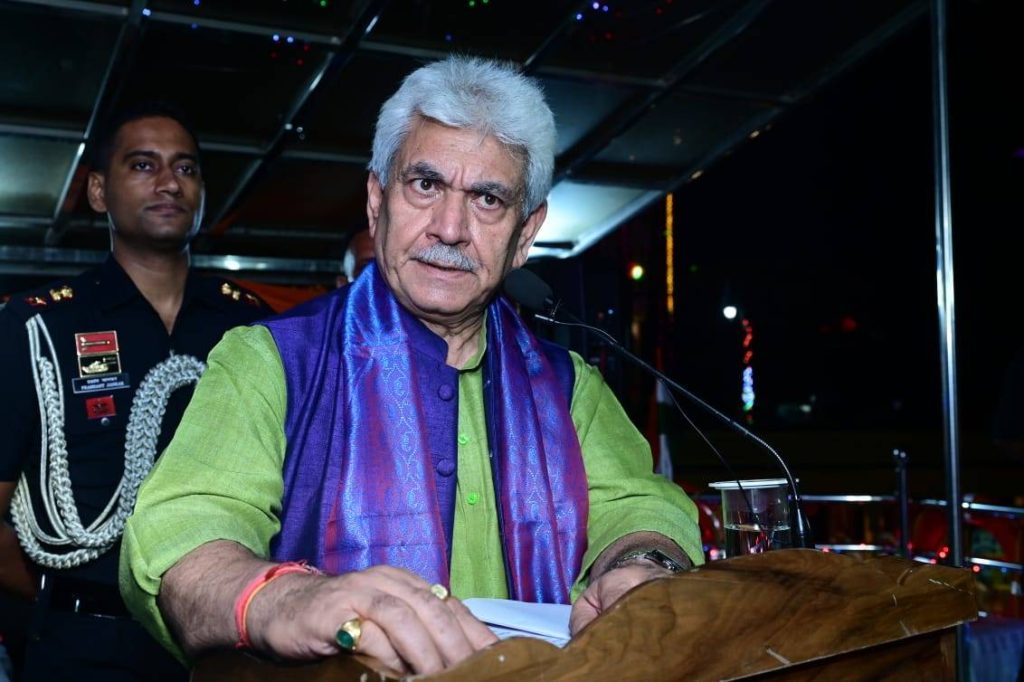
“Mr. Majid Hussain Qadri, a Senior Assistant Professor in University of Kashmir has a long association with terror organizations that includes LeT. He had been earlier booked under Public Safety Act and is figuring in a number of FIRs registered u/s 302, 307 and 427, and 7/27 RPC relating to various terror related cases”, said the press release.
The only negative reaction to the Government action came in from the Peoples Conference chairman Sajad Lone who functioned as a Minister from the BJP quota in Mufti Mohammad Sayeed’s and Mehbooba Mufti’s government in 2015-18.
“Every citizen of India has his or her own rights. A son can’t be held responsible for his father or wife for her husband or a father for his son. Sad – that kinship is used as a justification to sack people. This simply is not good. In all humility, I register my disagreement,” Lone tweeted.
Previously, in a similar action, the UT government terminated the services of a senior professor of the Department of Chemistry in the University of Kashmir. With the fresh orders, three of Salahuddin’s sons have been removed from the government service. The government has also dismissed the separatist hardliner SAS Geelani’s grandson as a Manager in the Sher-e-Kashmir International Conference Centre (SKICC).
(The content is being carried under an arrangement with indianarrative.com)
ALSO READ-Lashkar terrorist caught, was Jammu BJP’s social media in-charge

